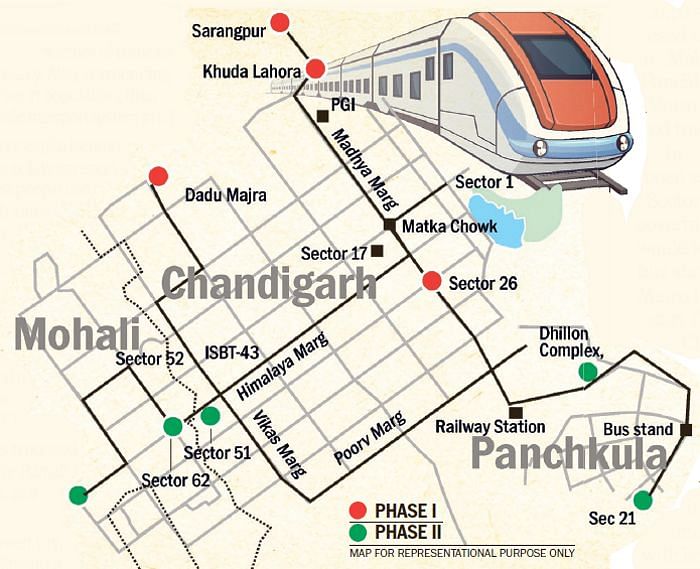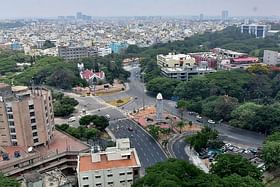The RITES agency has put forward a proposal to address traffic congestion in the tricity, by a 39-km metro network that would cover Chandigarh, Mohali, and Panchkula.
The governments of Punjab and Haryana, and the UT Administration of Chandigarh has unanimously approved the final Comprehensive Mobility Plan (CMP) report submitted by the Rail India Technical and Economic Service (RITES).
The meeting regarding the CMP for the tricity — Chandigarh, Panchkula and Mohali, was chaired by Punjab Governor and UT administrator Banwarilal Purohit.
With certain observations, both the administrations, gave the metro project their in-principal approval. The report also includes high demand bus corridors, new road links, bypass, and more, reports The Tribune.
As per the report, an official said the CMP would include mass rapid transit system (MRTS) and the chances of the tricity getting a Metrolite are higher.
After incorporating the suggestions, the report will be sent to the Union Ministry of Housing and Urban Affairs for final approval.
The Metro Proposal Under CMP
The report by RITES addressed various aspects of CMP, including the vision and objectives, current traffic situation, the future course of action with a citywide integrated multi-modal transport plan, institutional strengthening, and approximate cost estimates.
The agency has put forward a proposal to address traffic congestion in the tricity by a 39-km metro network that would cover Chandigarh, Mohali, and Panchkula.
The proposed metro network comprises two corridors to be implemented in two phases.
While the first corridor — from Chandigarh’s Grain Market Chowk to Panchkula — will be 22.5-km long, the second will run from Sector-43 ISBT in Chandigarh to Saneta village in Mohali, with a total length of 16.5 km, as per a Hindustan Times report.
The mobility plan has been categorised into proposals for short, medium, and long-term transport improvements, expected to cost Rs 10,570 crore — with additional focus on enhancing parking management, junctions, pedestrian infrastructure, road infrastructure, local bus system, intermodal interchanges, and integrated freight complexes.
According to the HT report, with a population of over 12 lakh and 15 lakh registered vehicles, Chandigarh has the highest density of vehicles per household in the country, leading to constant traffic issues.
Moreover, over two lakh vehicles moving on the tricity and inter-state routes also cross the city daily, adding to the congestion.

The meeting was attended by Haryana Chief Minister Manohar Lal Khattar, Punjab Tourism and Culture Affairs Minister Anmol Gagan Mann, Chandigarh adviser Dharam Pal and several senior officers from Punjab and Haryana.
At the meeting, Chief Minister Khattar proposed the integration of the Pinjore-Kalka metro connectivity with Chandigarh and Zirakpur as part of the CMP.
With Pinjore-Kalka’s location as the gateway to Himachal Pradesh and its significant daily traffic to Panchkula and Chandigarh, it is advisable to include it in the metro plan connecting to Chandigarh.
He expressed that key locations such as Post Graduate Institute of Medical Education and Research (PGIMER), Punjab and Haryana High Court, secretariat, and Vidhan Sabha be added in the initial phase of the proposed metro.
He also recommended adding airport connectivity to Panchkula in the mobility plan, stressing the importance of enhancing airport connectivity through the metro.
The stakeholders further agreed to set up a Unified Metropolitan Transport Authority (UMTA), a unified platform to handle overall mobility issues of the tricity.
UMTA will comprise officials from the central government, Chandigarh administration, Haryana, Himachal Pradesh and Punjab to ensure coordination among various institutions and implementation of the mobility plan.


